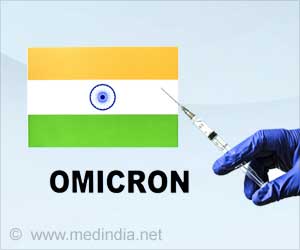Highlights From the Interview with Dr. Subramaniam Swaminathan, a Specialist in Infectious Diseases
No country, community, or individual is safe until everyone worldwide, is safe. The emergence of Omicron, a new variant of coronavirus, has again brought the spotlight on how unprecedented the pandemic is and the precarious situation we’re all in.
What is Omicron Variant?
The World Health Organization has designated Omicron – the B.1.1.529 lineage of SARS-CoV-2 as a Variant of Concern – leading to fears of another global surge in cases. The virus is present in the ecosystem, continuously evolving and mutating. Omicron multiplies 70 times faster than delta in human airways.
Symptoms of Omicron:
The symptoms of Omicron vary from mild to severe such as:
-
Fever ranging from mild to severe,
Cough - Body pain
and a few more depending upon the response of the patient’s immune system to the virus.
Individual-Level Management of Omicron Virus
The Omicron virus is hitting the nation faster and symptoms must not be mistaken for normal flu. On finding similar symptoms mentioned above
- One must isolate themselves
-
Get the test done immediately, especially among patients with pre-existing health conditions like diabetes, kidney problems. - Witnessing first and second waves, there is an influx of information among people, and a certain set of drugs are available which were used for treating patients infected with the virus. But considering an important fact, that response of every patient’s immune system is different; hence before taking medicines other than paracetamol and vitamin C, one must consult the doctor.
What is the Effect of Vaccination?
The symptoms of Omicron vary from mild to severe. The severity or need for oxygen seems less probably because of the massive vaccination drive in the nation. The death and hospitalization rates are significantly low as compared to the last waves. Also, taking lessons from the previous waves our capacity building has been relatively high.
-
Vaccination doesn’t prevent the virus, but it reduces the severity. -
Double dose vaccination prevents the severity by 50%, and booster dose or precaution dose prevents severity by 90%. -
The rate of hospitalization or death seems to be far less for larger masses that have been vaccinated. -
95% of people admitted in hospitals who need oxygen are the ones not vaccinated.
Special Care for the Population not Vaccinated
The population who are not vaccinated, especially the kids, must be taken special care. In the current pandemic wave, we have seen kids in the age group 15 or 18 years of age and with pre-existing health conditions at an increased risk.
Omicron, the RNA virus, is a mutating virus and vaccination is the only protection against the mutating virus.
Source: Medindia



